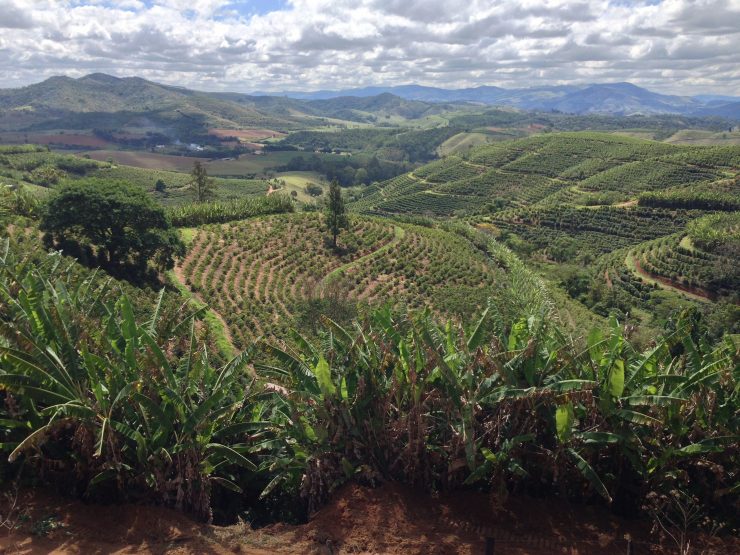
“They’ve got an awful lot of coffee in Brazil.” – Frank Sinatra
Estimates for the 2015 Brazilian harvest lie somewhere north of 50 million bags, a number monitored intently by coffee traders and professionals around the world each year. The annual Brazilian crop and world coffee prices are intimately linked, and even within Brazil, internal coffee consumption is also high, sitting around 20 million bags, second only to the United States in volume. That said, local consumption of specialty-grade coffee is slim to none. Upon traveling to Brazil, one can frequently hear a common lament on the tip of a local’s tongue—”Unfortunately, our best beans go away”—and they are mostly right, save perhaps for a new generation of coffee producers and roasters who are intent on changing the status quo.
In the past few years, nature has not been too kind to Brazilian producers, with a major drought devastating a large part of the country in 2014. As this year’s harvest has just begun, it seems the rains have returned. I spoke to some coffee professionals from across Brazil who are involved not only in Brazilian coffee but in its specialty market, to find out what we can expect from our beloved crops this year.
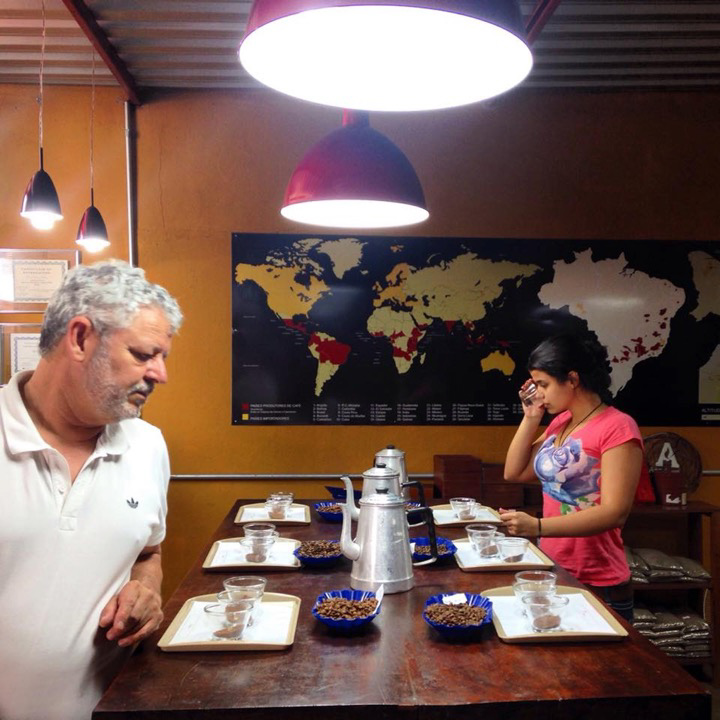
Bruno Souza
First up is Bruno Souza, a fourth-generation coffee producer with a farm called Fazenda Esperança in the Cerrado region of Minas Gerais. In addition to the farm, Souza is chairman of Brazilian Estate Coffee Cooperation (BECCOR), a green coffee supplier with an office in Beaverton, Oregon, outside of Portland. In 2002, Souza moved his family to the United States for a decade as he worked to bridge the gap with the American coffee market. Today, he lives in Belo Horizonte, and together with his wife runs Academia do Café—a cafe, roastery, and coffee school. Souza is not so optimistic about this year’s yields. “I do not believe that we will have a bigger crop than the last one, after what I saw when traveling to the coffee-producing area,” says Souza. “It looks like we will have a wet winter that can compromise the quality.”
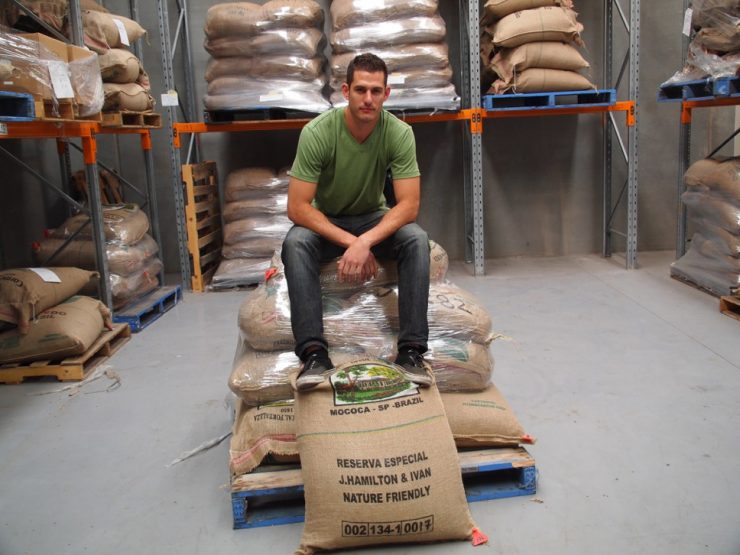
Felipe Croce
Next we have Felipe Croce, a young Brazilian producer who was raised in Chicago, Illinois. Today, he is in charge of quality control at Fazenda Ambiental Fortaleza, an organic coffee farm in Mococa, São Paulo, a fifth-generation coffee business, as well as co-owner of FAF Coffees with his father Marcos Croce. FAF Coffees is a green bean supplier, export company, and a center for coffee knowledge with an office in the city of São Paulo. Recently, Felipe founded a micro-roastery for the local market called Isso é Café, providing some of FAF’s finest beans in fun, colorful packaging to Brazilians. Croce is more enthusiastic: “We have had an all-around colder average temperature when we needed it and plenty of rain even late into the season, which has allowed for a more dense coffee cherry development. This density translates to higher quality and yields.”
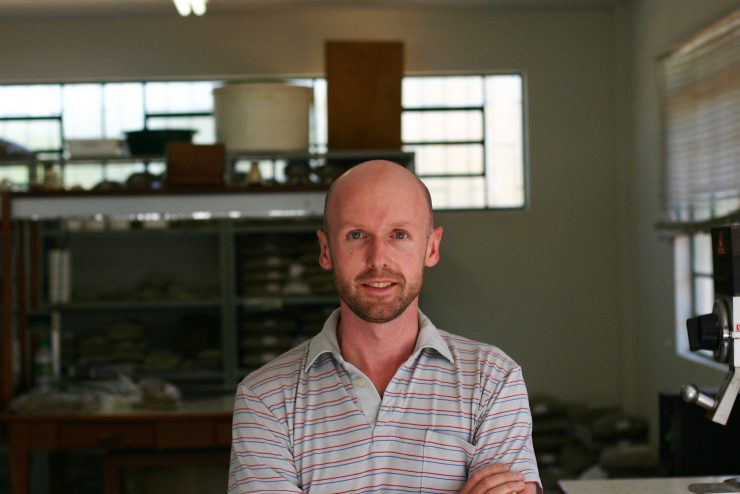
Byron Jackson Holcomb
Our third coffee professional comes to show that the close relationship between Brazil and the United States in the coffee world does not consist solely of Brazilians who lived or were raised abroad—but the other way around, too. Byron Holcomb is a native Californian who moved to Brazil just over two years ago to become quality control manager at Fazenda Santa Izabel, a farm in the south of Minas Gerais. He is part of an organization called FAL, which operates as a trading company with a roastery in Brooklyn, New York, called Nobletree.
“I think Brazil is doing a great job. The excitement around producing quality is tangible. However, I have many friends who are green buyers of specialty coffee and several of them stay clear of naturals and even more stay clear of Brazil. I think the true test will be to see more industry-leading specialty roasters adding Brazil back as an origin,” says Holcomb.
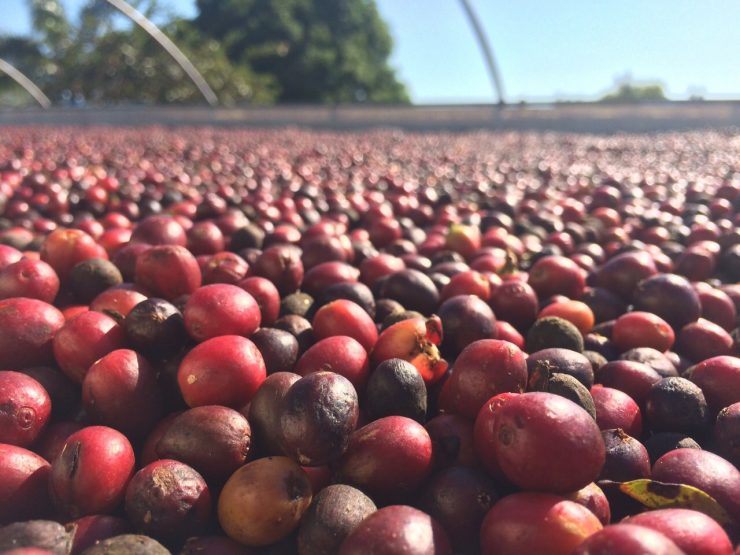
Photo courtesy of FAF.
“Brazil needs to remember that our competition to sell more green coffee isn’t between Brazilian regions, it is between every other coffee in the world. Specialty buyers put Brazil against Colombia, Honduras, and other origins every day of the week. So our focus on cup quality is well-founded. Changing the image of Brazil still has a long ways to go, which is both an opportunity and the challenge for specialty coffee growers.”
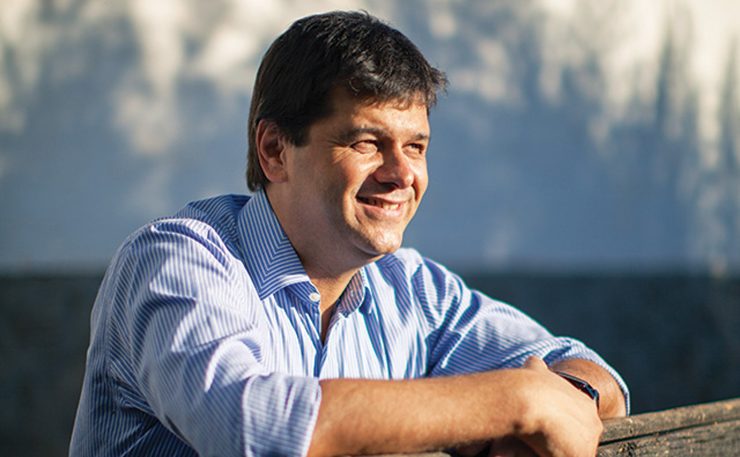
Silvio Leite (photo by Guilherme Gomes / Revista Espresso)
Last but not least, we head to a state that is also beginning to make some noise in the world of specialty coffee: Bahia. Here I spoke with Silvio Leite, who is the current President of the Brazilian Specialty Coffee Association (BSCA) and President of the Commercial Center of Coffees from Bahia. A native of Salvador, Bahia, Leite estimates the 2015 Bahian crop to be between 1.5 to 1.8 million bags of Arabica coffee. He believes that coffee competitions like Cup of Excellence have increased knowledge about Brazilian coffees, particularly in specialty markets.
“Up until the late ’90s, there was a complete ignorance of the potential for high-quality coffee in Brazil,” says Leite. “This began to change with quality-focused competitions such as the Illy Café and later the Cup of Excellence, which was launched together by the Alliance for Coffee Excellence (ACE) and the Brazilian Specialty Coffee Association. The Cup of Excellence has brought knowledge of Brazilian coffees and producing regions where people had never imagined possible. Two great examples are the Zona da Mata (‘Forests of Minas’) region, where the first champion of the Cup of Excellence came out of, and the areas around the Chapada Diamantina, in Bahia, such as Mucuge and Piatã.”
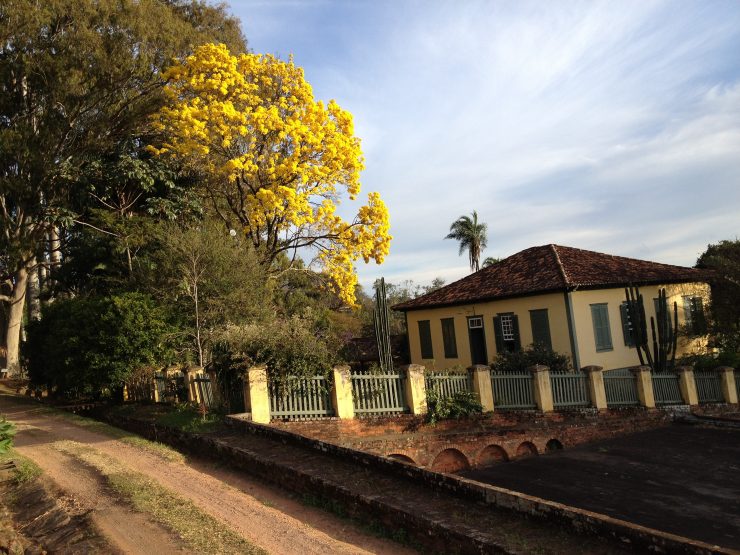
The main house at FAF. Photo courtesy of FAF.
Despite being the world’s largest coffee producer with a great part of governmental incentives focused on the commoditization of coffee, there is great potential for high-quality coffees to come out of Brazil. Producers like Souza, Croce, and Holcomb are investing both in the production of specialty coffee and in the awareness of what it takes to bring the beverage through its journey from seed to cup, with taste, social awareness, and respect for the environment. The rest will be up to Mother Nature.
Paulo Pedroso is a regular contributor to Brazilian newspapers Folha de São Paulo and Valor Econômico, as well as Revista Espresso, a Brazilian specialty coffee magazine. Read more Paulo Pedroso on Sprudge.
The post Brazil Harvest Watch: Predicting The Harvest With Top Brazilian Producers appeared first on Sprudge.

